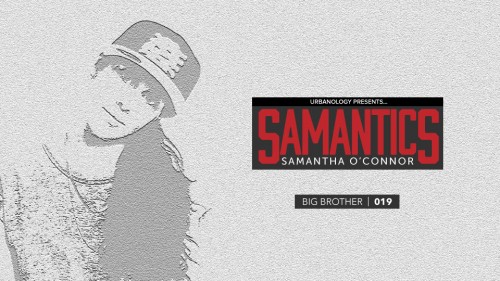I watch TV for a living. My full-time job consists of conducting national coverage of the top reality shows on television. For the second summer in a row, my entertainment headlines focused on the utter madness of “Big Brother”, the filmed social experiment that sticks 16 Americans in a house for the summer, as the rest of the world watches them compete for a $500,000 grand prize.
As the 16th season came to an end, I couldn’t help but notice the similarities between the competition for half a million dollars and the struggle to succeed as an artist in the Toronto hip-hop scene.
The human chess game is one of social strategy, manipulation and mental strength – and the same thing can be said about “Big Brother”.
Despite the absence of host Julie Chen, the punishment of house slop and the weekly Thursday night eviction, the game that rules the reality TV ratings and the game we find ourselves playing in this music realm are one in the same.
The human chess game is one of social strategy, manipulation and mental strength – and the same thing can be said about “Big Brother”. Here’s where the two collide:
1. A numbers game: To be any type of successful on the show, players must first realize that it’s a numbers game. It doesn’t matter how many enemies you make, when you’ve made the partnerships and earned the votes to keep you safe from eviction. And so, strategic alliances are soon formed. Toronto knows this strategy all too well, as our hip-hop scene is cliqued up and squaded out with teams hoping to ether their competition and earn a fan’s download/listen. Some are authentic, while others are so obviously for gameplay. Because in a market this small, it’s not about the number of shows you perform at or the amount of material you drop, it’s about the number of fans you have to download your music, watch your videos and purchase tickets to your show.
It may not be to the extreme of hidden cameras set up to document our every move, but rest assured, the Toronto hip-hop scene is being monitored and documented more than ever…
2. Surveillance: We too find ourselves stuck in a house (albeit, a much larger house,) restrained behind the invisible walls that separate us from our actual big brother, the United States of Murica. But despite feelings of alienation, we are by no means isolated. We are being watched. It may not be to the extreme of hidden cameras set up to document our every move, but rest assured, the Toronto hip-hop scene is being monitored and documented more than ever from the game’s largest media outlets. In the last month, Derek Wise has been featured on Noisey, Sean Leon on Complex, Fundament on The Source and Raz Fresco on XXL, while everyone from Ernest Baker and Drew Millard to Lowkey and Elliott Wilson have been parading through our Toronto streets. Writers like Erin Lowers have written reviews for XXL, photographers like Eric Zaworski have had their work published in Complex while Noisey Canada was even established this year. These are leaps and bounds and people are watching.
3. Strategy: The key to winning is to lay low and work steady, because boisterous gameplay will mark each player as public enemy number one. Any successful winner of “Big Brother” has perfected that strategy and honed his/her ability to keep a low profile planting seeds (networking) and work diligently at the beginning of the game, until the weaker players are weeded out, before showing just how strong of a competitor he/she may be. And this means, not turning on each other so easily and sticking true to their alliances. In “Big Brother” and in our rap game, players have a bad habit of throwing each other under the bus to get ahead, because manipulation and backstabbing are just how some play the game. But in an industry with no rules, the free-for-all is to be expected. It’s hard to trust others when everyone is in it for himself or herself. And when there’s a career, money and fame involved, people will do just about anything.
And despite their independent success, Toronto artists must study the groundwork laid by artists like Maestro Fresh Wes, Kardinal Offishall and Drake in order to get where they are.
4. History: Throughout its 16 seasons, “Big Brother” has housed some ground breaking puppet-masters that have paved their own lane to the grand prize and have changed the way the game is played. Names like Dr. Will Kirby and Dan Gheesling are etched into the reality TV hall-of-fame as legends of the competition as every new player has studied their calculated moves and social strategies in each new season. Toronto has its own set of legends, which have created the opportunity for us to play along and succeed at it. And despite their independent success, Toronto artists must study the groundwork laid by artists like Maestro Fresh Wes, Kardinal Offishall and Drake in order to get where they are. Without studying their game, it’s impossible to be clear about the market you’re in and the game you’re trying to play.
There’s a reason the show, as basic as it may seem to watch three times a week, has lasted 16 years and has been slated by CBS for more. And that’s because of its relevance to the competitive lifestyle so many of us face daily.
But Toronto’s biggest problem is its over-competitiveness. What we need to realize is that this isn’t “Big Brother”, despite what it seems like. There isn’t a guaranteed $500,000 prize waiting at the end, after a few months of work. Despite how we treat our opponents, we WILL have to see them regularly. And lastly, no matter what lies ahead, there can be more than one house guest left standing. We can all win.
@SamoMaryLeona

